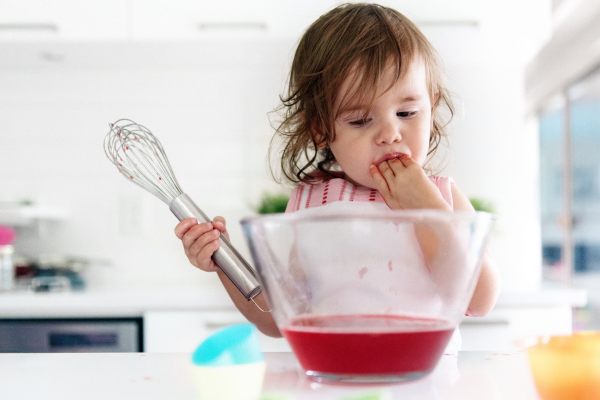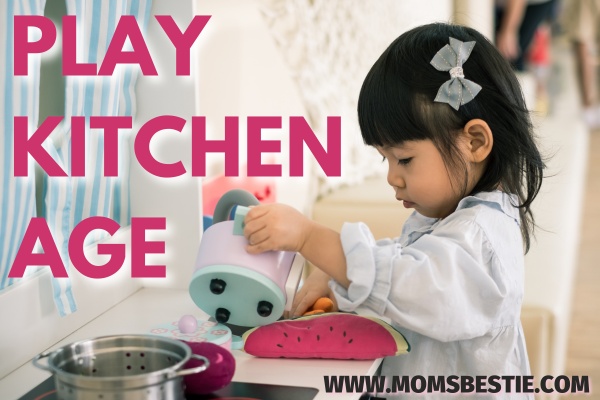Can Babies Have Jello?

Are you thinking of introducing Jello to your little one’s diet?
I know how tempting it can be to give your baby a sweet treat, especially one as colorful and fun as Jello.
The burning question on many parents’ minds is, “Can babies eat Jello?” and the answer isn’t a straightforward yes or no, there are a few things to keep in mind.
But before you bust out the Jello cups, let’s take a closer look at whether or not it’s a good idea.
It is made from gelatin, which may be difficult for babies under the age of 6 months to digest properly.
Plus, it often contains added sugars and artificial colors that can be harmful to your little one’s health if consumed in excess.
As a mother, I know how important it is to make informed decisions about what we feed our children.
That’s why in this article, we’ll explore whether babies can have Jello and what you should consider before introducing it to your little one’s diet.
So, sit back, relax, and let’s dive in together!
What Is Jello?
Jello is a gelatin-based dessert that comes in a variety of flavors and colors.
It’s made by dissolving gelatin powder in hot water, along with sugar and other flavorings.
The mixture is then chilled until it sets into a firm, jiggly texture that we all know and love.
Gelatin is the key ingredient in Jello, and it’s made by boiling animal collagen, usually from cow or pig hides and bones.
There are vegetarian and vegan alternatives to traditional Jello that are made without animal-derived gelatin.
Instead of gelatin, these alternatives use plant-based ingredients like agar-agar, carrageenan, or konjac root to achieve the same jiggly texture.
Jello can be made in a variety of shapes and sizes, from small cups to large molds, and can be served on its own or used as a base for other desserts, such as fruit salads and layered cakes.
What Are The Nutritional Values Of Jello?
When it comes to nutritional value, traditional Jello doesn’t offer much.
It’s primarily made up of sugar, artificial flavors, and colors, along with the gelatin or other gelling agents used to create its texture.
However, Jello can be fortified with added nutrients, such as vitamins and minerals, depending on the brand and type.
For example, some Jello products may contain added vitamin C or other nutrients.
Some of the alternative Jello products made with plant-based gelling agents may offer some nutritional benefits.
For example, agar-agar, which is made from seaweed, contains fiber and some minerals like calcium and iron.
However, it’s important to keep in mind that Jello is typically consumed as a dessert or treat, rather than as a source of nutrition.
While it can be enjoyed in moderation as part of a balanced diet, it’s not a food that should be relied on for its nutritional value.
Can Babies Eat Jello?
Babies over 6 months of age can have Jello in moderation, but it’s generally safer to exclude it from their diet as much as possible.
As a parent, it’s important to provide your little one with a variety of nutritious foods that will support their growth and development, rather than relying on processed and sugary snacks like Jello.
In addition to being low in nutritional value, it can also be a choking hazard for babies, especially if it’s not cut into small pieces or if it’s consumed in large amounts.
If you do choose to offer it to your little one, it’s best to do so as an occasional treat, rather than as a regular part of their diet.
You can also make a healthy Jello at home with fruit juice and less sugar.
Is Gelatin Good For Babies?
Gelatin, which is a common ingredient in traditional Jello, is derived from animal collagen and is generally considered safe for babies to consume.
In fact, some parents may choose to offer gelatin to their little ones as a way to support their gut health and immune system.
Gelatin contains amino acids that are important for gut health, as well as glycine, which is an anti-inflammatory and can help support the immune system.
Some research suggests that consuming gelatin may help improve digestion and reduce inflammation in the gut.
However, it’s important to keep in mind that not all gelatin products are created equal.
Some may contain added sugars, artificial sweeteners, and colors, which can be harmful to babies if consumed in excess.
It’s important to choose a product that’s low in sugar and free from artificial additives.
If you’re making Jello at home, you can use high-quality gelatin that’s free from additives, and choose natural sweeteners like honey or maple syrup.
You can also experiment with alternative gelling agents like agar-agar or carrageenan, which are plant-based and offer some nutritional benefits.
Is Jello A Choking Hazard For Babies?
Choking is a serious concern for babies, as their airways are smaller and more easily blocked than those of adults.
Even small pieces of food or objects can pose a risk if they become lodged in a baby’s airway.
As mentioned earlier, Jello can be a choking hazard for babies, especially if it’s not cut into small pieces or if it’s consumed in large amounts.
It is a soft and slippery food that can easily slide down a baby’s throat, which can lead to choking.
To help prevent choking, it’s important to supervise your baby closely while they’re eating to make sure they’re able to handle it safely.
You can also cut Jello into small pieces or serve it mashed or blended to reduce the risk of choking.
It’s also a good idea to avoid giving your baby Jello if they’re showing signs of being tired or unwell, as they may be more likely to choke.
Always make sure your baby is seated upright and facing forward while eating to help ensure that food goes down the right way.
Healthy Alternatives To Jello

If you’re looking for healthy alternatives to Jello for your baby, there are plenty of options to choose from that are both nutritious and safe.
Fresh Fruit Puree
Fruits are rich in vitamins, minerals, and fiber, and can help support your baby’s growth and development.
You can puree fresh fruit, such as bananas, peaches, or strawberries, and serve it as a healthy and tasty alternative to Jello.
Homemade Pudding
You can make a homemade pudding using nutritious ingredients like whole milk or coconut milk, honey or maple syrup for natural sweetness, and cornstarch or arrowroot powder for thickening.
Homemade pudding is a great source of calcium and healthy fats and can be a delicious treat for your little one.
Chia Seed Pudding
Chia seeds are packed with nutrients like fiber, protein, and omega-3 fatty acids, making them a great alternative to Jello.
You can mix chia seeds with coconut milk, almond milk, or breast milk to create a nutritious and delicious pudding that your baby will love.
Yogurt
Yogurt is a great source of calcium and protein and can be a healthy and tasty alternative to Jello.
You can serve plain yogurt or mix it with fresh fruit or a natural sweetener like honey or maple syrup for added flavor.
Also Read: Is Activia Yogurt Safe For Kids?
Frozen Fruit Pops
You can puree fresh fruit and freeze it into popsicle molds to create a healthy and refreshing treat for your baby.
Frozen fruit pops are a great way to introduce your little one to different flavors and textures, and can help soothe teething gums.
Wrapping It Up
Babies above six months can have Jello, but it’s important to be mindful of the added sugars, artificial sweeteners, and colors in some products, as well as the potential choking hazard it poses.
Fortunately, there are plenty of healthy and nutritious alternatives to Jello that you can offer your baby, which is not only delicious but also provide important nutrients that support your baby’s growth and development.
As with any new food, introduce Jello or any of these alternatives slowly and in small amounts, while carefully monitoring your baby for any adverse reactions or signs of choking.
By following these guidelines and offering a variety of healthy and nutritious options, you can help your baby develop a love of good food and healthy eating habits that will last a lifetime.
Disclaimer!!!
The information provided in this article is intended for educational purposes only and should not be construed as medical advice.
Always seek the advice of a qualified healthcare provider with any questions you may have regarding your baby’s health or the introduction of new foods into their diet.





